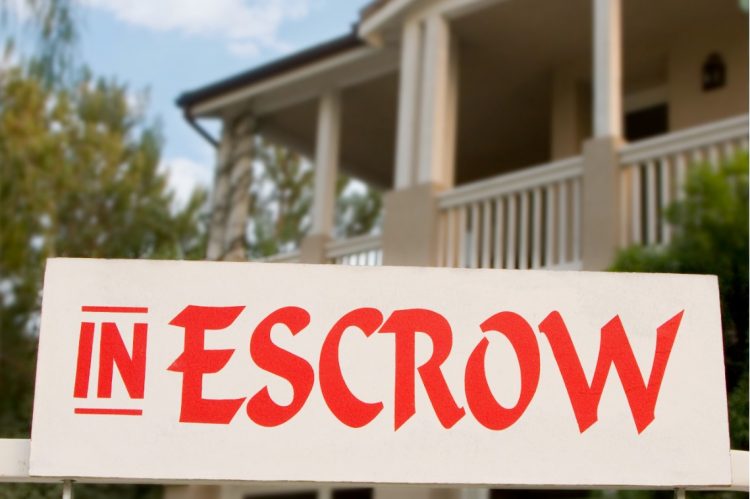Escrow holdbacks and repair escrows are common tools in real estate transactions, used to facilitate smooth property transfers under certain conditions.
These financial arrangements help manage and mitigate risks associated with property conditions at closing. I will clarify the distinctions and similarities between escrow holdbacks for repairs and other types of escrow accounts. You will get insights into how each operates within home sales.
Understanding these mechanisms is crucial for buyers, sellers and real estate professionals to navigate their obligations and protect their interests effectively.
As a REALTOR® who has been practicing real estate for the past three decades, I can tell you that both escrow holdbacks and repair escrows are common. They are often used instead of a seller providing a credit.
Understanding escrow in real estate
Definition of escrow
Escrow is a legal arrangement in which a third party temporarily holds funds or assets until the parties involved in a transaction meet specific conditions. This process ensures that everyone fulfills their part of the deal before any property or money changes hands.
It is not uncommon for a real estate attorney, REALTOR® or title company to hold escrow funds.
Role of escrow in property transactions
Escrow services help manage the exchange of property titles and funds in property transactions. They ensure that the buyer’s funds are available for disbursement and that the seller transfers a clear title, providing security for both parties.
What is an escrow holdback?
Definition and purpose
An escrow holdback agreement involves funds set aside by a seller at closing, retained explicitly in escrow to address repairs or fulfill other conditions post-closing. This ensures that certain obligations are met after the transaction has been finalized.
Common uses in real estate
Escrow holdbacks are often used when a property requires significant repairs that cannot be completed before closing. They guarantee the buyer that the seller will resolve these issues, even after the transfer of ownership.
A good example is a failed septic system. In many states, you must have a passing septic inspection to close. When it fails, and the replacement cannot be completed before closing, an escrow holdback can be done.
If you’re buying a home with a septic system, Mortgage lenders require 1.5 times the estimated cost of the repair to be held back. Once the job is complete, the local health board approves the work, and the money is released.
What is a repair escrow?
Definition and purpose
A repair escrow is a specific account used exclusively for repairing property defects identified during a home inspection. Funds are deposited into this account at closing and used to pay for repairs after the property changes hands.
Another excellent example would be a buyer discovering an issue at the final walkthrough. For example, the seller must compensate the buyer if the water heater let’s go on the closing day.
Rather than taking a repair credit, a buyer could insist on the seller replacing the tank.
How repair escrows differ from other escrows
Unlike general escrow accounts used for holding earnest money or facilitating the exchange of property, repair escrows are solely dedicated to covering the costs of necessary repairs. This ensures property conditions meet specific standards.
Comparing escrow holdbacks and repair escrows
Differences in usage
While both mechanisms aim to ensure property repairs, escrow holdbacks can cover a broader range of conditions, not just repairs. Repair escrows are strictly for funding repairs as agreed upon in the property inspection report.
Impact on closing
Understanding how each type of escrow impacts the closing process can help parties anticipate potential delays or additional requirements. Escrow holdbacks, for example, may lead to more negotiations at closing than repair escrows.
Similarities between escrow holdbacks and repair escrows
Risk management tools
Both escrow holdbacks and repair escrows serve as risk management tools. They protect the buyer by ensuring funds are available for necessary property improvements post-closure.
Involvement of third parties
In both cases, a neutral third party administers the funds, typically an escrow agent. This ensures that the funds are only used as stipulated by the terms of the escrow agreement.
Future outlook and advice
As the real estate market evolves, using escrow accounts, including escrow holdbacks and repair escrows, will likely become more sophisticated and widespread. Buyers, sellers and agents should stay informed about these practices to ensure smooth transactions.
I always recommend my clients have a real estate attorney tailor these escrow agreements to specific transaction needs and local regulations.
Conclusion
Escrow holdbacks and repair escrows are essential components of many real estate transactions, particularly when issues related to property conditions are involved.
By understanding the distinctions and similarities between these two types of escrow accounts, parties involved in property transactions can better navigate the complexities of buying and selling real estate.
This knowledge ensures that all parties uphold their end of the bargain, leading to more secure and satisfactory property transfers.












